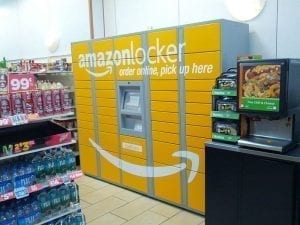Companies like Amazon, Tesla, and Bed Bath & Beyond are pulling back on promotions that customers have come to take for granted.
In the last few months, some big companies have started pulling back their most popular promotions. What’s going away, and why? And what does it mean for your wallet?
A generation ago, giant discounts at retailers were innovative attention-grabbers. That’s when Bed Bath & Beyond started mailing out those big blue coupons good for 20% off, hoping to lure customers who would then buy other items at full price. Times have changed since then. Now, customers take such discounts for granted, perhaps never setting foot in Bed Bath & Beyond without a stack of coupons in their pocket. That’s why, after years of declining profits, the retailer will be pulling back on some of their ubiquitous coupons and restricting how the offers can be applied going forward. Will customers still want to shop there at a price point higher than they’ve become accustomed to spending, though, especially when housewares aren’t exactly uncommon? That’s something the store will have to sort out before they further disincentivize shoppers and potentially go the way of Mervyn’s or Sears.

Amazon is arguably responsible for the declining state of retail outlets, but they’re pulling back one of their most popular promotions, too. When Amazon Prime launched in 2005, the allure of free two-day shipping drew customers in droves. Now, Amazon customers have grown used to fast, free shipping. Those shipping charges are mounting, though, and now that Amazon no longer needs to grab other retailers’ customers at any cost, they’re starting to reconsider how much money they’re bleeding. Really, after you externalize as many costs as possible onto your suppliers, workers, shippers, municipalities, and the environment, at some point you have to start either foregoing profits (something Amazon, surprisingly, doesn’t much generate to begin with) or reducing the benefits offered to customers. If you have to pick up your purchase at a locker anyway, why not just buy locally? The job you save may be your own.
Like Amazon, Tesla shook up the market, and then started pulling back on its promises. In this case, it was a promotional deal for Tesla customers who referred a friend to the company. If their friend bought a Tesla, the referral program offered six months of free supercharging to the new buyer, and a special prize to the referring customer. Tesla started generating positive cash flow last year, and in Q3, reported holding $3 billion cash in reserve, but that doesn’t mean it will necessarily make good on its program. Customers have complained on social media that their prizes are slow in coming, or don’t arrive at all. Will Elon Musk’s company pony up and deliver all the outrageous prizes they offered before the program ended, such as free $8000 Powerwall battery units, free lifetime charging, or the opportunity to launch a photo into deep space?
So, why are these big companies pulling back on the irresistible promotions that some customers expected to use forever? It could be exactly as they claim, that providing sweeping discounts or free stuff is becoming fiscally unsustainable. That’s a hard sell in an economy where businesses have been sitting on huge piles of cash, spending mostly to reduce debts or buy their own stock back from investors. It’s also possible that businesses are doing so well that they no longer need to offer sweet deals to attract customers, as the clothing retailer Express admitted last month. That’s an interesting possibility in a country ostensibly experiencing full employment but where many families still haven’t recovered from the Great Recession.
In any case, it’s a reminder that big companies have more power than you do, and either they know you’ll still shop there anyway, or they don’t care if you leave. Big businesses would do well to remember that when a tall tree falls, the light reaching the forest floor feeds the many.
Related: The Point of Diminishing Returns


Join the conversation!